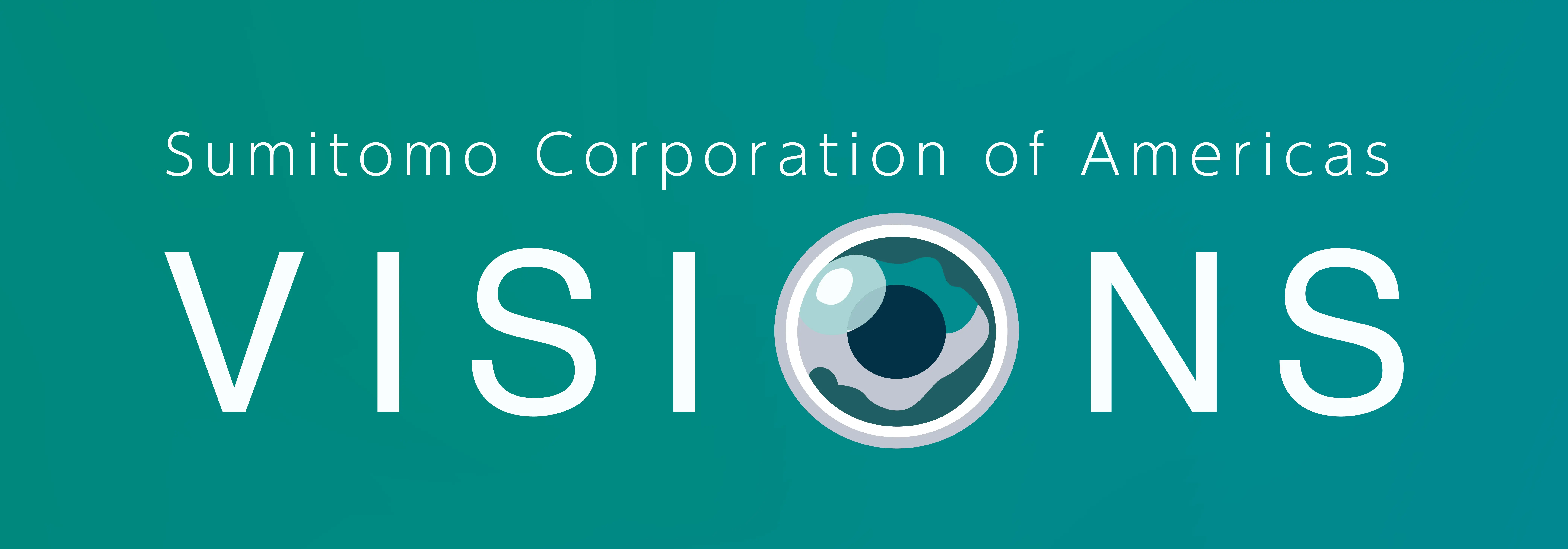
Sumitomo Corporation of Americas’ Chief Ethics and Compliance Officer Tim Sander talks to us about how assuming positive intent should be the norm, how he is promoting unity among offices as the new President of SC Canada, and how servant leadership is still his byword for success in the c-suite.
What precedent do you hope to set as Chief Ethics and Compliance Officer for SC Americas, the position you assumed earlier this year?
A Chief Ethics and Compliance Officer serves essentially as the leading architect of an organization’s ethical culture. The precedent I intend to establish is that “Every Conscience Counts” in SCOA and in every Sumitomo Corporation Group Company. To prosper, all our employees (not just me) must work together to design and continuously build our ethical culture upon the solid foundation of the Sumitomo Business Philosophy. Our ethical culture is centrally important to our collective “why”. It is the reason we are in business to begin with. It is essentially our business model and drives our ability to create value by attracting talent and sustaining our trustworthiness in society.
To succeed in conducting our business, we must always (1) give “first priority” to compliance and (2) immediately report any compliance related concerns. This requires us to foster a psychologically safe-to-say working environment by giving all employees a voice to raise concerns and questions about any company activity or policy. We must also empower employees to raise any concerns about other colleague’s behavior (including my own). We should strive to receive constructive criticism from our fellow colleagues with appreciation and the assumption of their positive intent. These are the precedents I would like to establish for myself and our employees. To this end, I will strive to be an approachable leader willing to listen and encourage others through empathy, understanding and respect, while always striving to exercise my authority fairly.
What do you hope to accomplish in your new position as President of Sumitomo Canada?
First, please allow me to share two important observations I have made since assuming my role as President of Sumitomo Canada. First, I observe tremendous investment opportunities in Canada, a nation endowed with rich natural resources and a highly diverse and skilled labor force. Second, our Sumitomo Canada employees are amazing, enthusiastic professionals. They are shining examples of “Passionate Professionals with Purpose” (a phrase I use to describe the ideal Sumitomo employee).
We can seize business opportunities in Canada (and beyond) by empowering our Sumitomo Canada employees. I will use my position to foster collaboration among our four Canadian offices (in Vancouver, Calgary, Toronto, and Montreal) and between them and our worldwide colleagues. In doing so, I seek to elevate the visibility of Canadian business opportunities for Sumitomo Canada and our entire organization.
Your advocacy of servant leadership is well documented. How do those tenets serve you in these new positions?
Servant leadership emphasizes the importance of listening, empathy, acceptance, self-awareness, situational awareness, appreciation, curiosity, continuous learning, foresight, courage, conceptualization, developing others, and stewardship. Throughout my personal and professional experience, this leadership approach has proved most effective for me.
I apply these principles to my current positions in various ways. For example, humility is essential for me as President of Sumitomo Canada. As a US citizen, I must approach my position with respect for all our Sumitomo Canada employees who have more knowledge and expertise about Canada. I appreciate them for raising my awareness about the Canadian market and business practices.
As Chief Ethics and Compliance Officer, listening, empathy and stewardship are essential qualities. To avoid prejudgment, I must listen carefully to others. Before recommending disciplinary actions, I must empathize appropriately with all parties to understand their motivations and concerns. At the same time, exercising adequate stewardship over compliance may necessitate strong disciplinary recommendations to protect employees and enforce appropriate accountability.
How has your multi-decade tenure at Sumitomo informed your understanding of leadership?
Earlier in my career, I believed leadership was about positions and titles. I thought people with titles were leaders because I perceived that they had power and authority. I am now convinced leadership is all about influence and everyone (no matter what position) has the capacity to lead by influencing others and they should not hesitate to do so. In fact, I believe we count on everyone to be stewards of their respective roles (and everyone’s role includes promoting our ethical culture).
I fortunately learned from many outstanding leaders at Sumitomo. The values they seek to uphold have been incredibly consistent. Yet, I have also observed our company adapting to evolving expectations of ethical behavior surrounding topics such as diversity equity & inclusion, sustainability, employee wellness, and environmental protection. Confronting these and other ethical issues is necessary for us to grow as we continuously adapt to social, economic, demographic, and cultural shifts. By relying on our Sumitomo Business Philosophy, I am confident we will not only navigate these changes, but also leverage them to grow into a stronger and more ethical company in the future. I appreciate all our employees with whom we share this journey.
